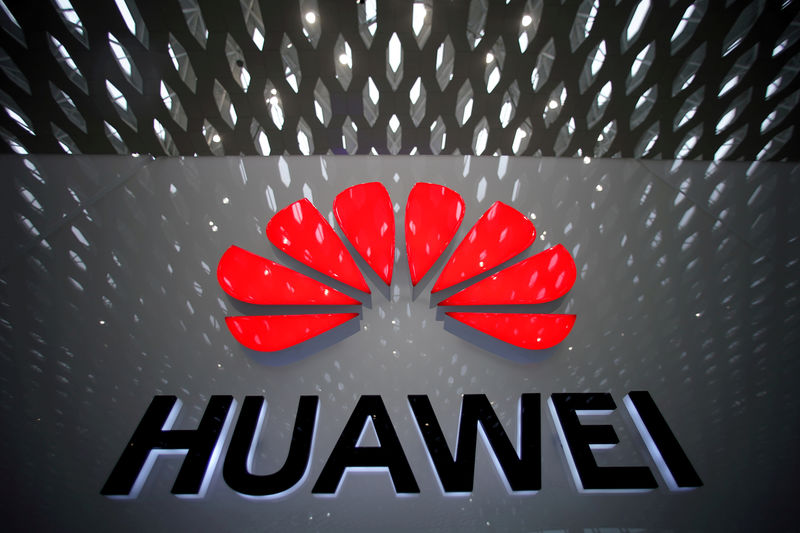This post was originally published on this site
https://i-invdn-com.akamaized.net/trkd-images/LYNXMPEFAB0R7_L.jpg © Reuters. FILE PHOTO: FILE PHOTO: A Huawei company logo is pictured at the Shenzhen International Airport in Shenzhen
© Reuters. FILE PHOTO: FILE PHOTO: A Huawei company logo is pictured at the Shenzhen International Airport in ShenzhenSHENZHEN, China (Reuters) – Chinese telecoms giant Huawei Technologies said on Tuesday it will hand out 2 billion yuan ($286 million) in cash rewards to staff working to help it weather a U.S. trade blacklisting.
The world’s largest telecoms equipment provider has said it has been trying to find alternatives to U.S. hardware after the United States all but banned it in May from doing business with American firms, disrupting its ability to source key parts.
The cash is a mark of recognition for work in the face of U.S. pressure, Huawei’s human resources department said in a notice to staff seen by Reuters. It will also double pay this month for almost all its 190,000 workers, a company spokesman said.
The cash rewards will likely go to research and development teams and those working to shift the company’s supply chains away from the United States, the spokesman said.
Details of Huawei’s plan were first reported by the South China Morning Post on Tuesday.
Many in the U.S. government believe that Huawei’s equipment, particularly its 5G networks, pose a security risk, because of the company’s allegedly close ties to the Chinese government. Huawei has denied the Chinese government plays any role in its operations.
Although granted reprieves from much of the U.S. exclusion, Huawei had been working to find alternatives after it witnessed the crippling effect of U.S. sanctions on its smaller Chinese rival ZTE (HK:) Corp (SZ:) in early 2017.
The company is also the world’s second largest maker of smartphones and a surge in shipments of devices helped it to report a 27% rise in third-quarter revenue last month.
Fusion Media or anyone involved with Fusion Media will not accept any liability for loss or damage as a result of reliance on the information including data, quotes, charts and buy/sell signals contained within this website. Please be fully informed regarding the risks and costs associated with trading the financial markets, it is one of the riskiest investment forms possible.


